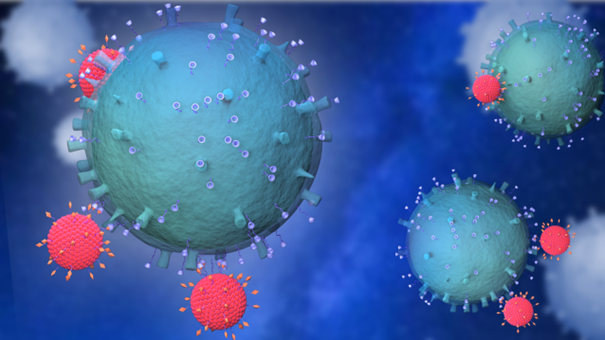The Chemistry Seminar at NU will continue with the invited research lecture on
"Supramolecular Chemistry Mediated Cell Engineering for Targeted Therapy"
by our guest speaker Professor Ruibing Wang
Faculty of Health Sciences, University of Macau, Macau SAR
Date: 21 February 2025, 18.00 Astana time
Biographical Information
Prof. Ruibing Wang is currently Professor of Supramolecular Pharmaceutics at University of Macau. He obtained his BSc and PhD degrees from Jilin University and Queen’s University, Canada, respectively. He joined University of Macau in 2014. Prof. Wang’s research interest is supramolecular biomaterials, and cell-mimetic and cell-based pharmaceutics. He has published over 200 peer-reviewed research papers on journals such as Matter, Nature Comm., Sci. Adv., JACS, Angew, Adv. Mater., Mater. Today etc, with a total citation of over 12,000 times and H-index of 63. He has won several prestigious awards and honors including 2018/2020/2022/2024 Macao Science and Technology Award - Natural Science Award and Technological Invention Award, as well as 2019 UM Teaching Excellence Award. He is among the list of Stanford’s World's Top 2% Scientists for many years in a row. He is an active grant examiner for National Natural Science Foundation of China (NSFC), French National Research Agency (ANR), Israel Science Foundation (ISF), Czech Science Foundation (GACR), and National Science Centre of Poland (NCN). In addition, he actively serves as Editorial Board Member of Chinese Chemical Letters, and Supramolecular Materials, and Editorial Advisory Board Member of ACS Applied Bio Materials, he is also a council member of Supramolecular Chemistry Advisory Committee of Chinese Chemical Society.
Prof. Ruibing Wang is currently Professor of Supramolecular Pharmaceutics at University of Macau. He obtained his BSc and PhD degrees from Jilin University and Queen’s University, Canada, respectively. He joined University of Macau in 2014. Prof. Wang’s research interest is supramolecular biomaterials, and cell-mimetic and cell-based pharmaceutics. He has published over 200 peer-reviewed research papers on journals such as Matter, Nature Comm., Sci. Adv., JACS, Angew, Adv. Mater., Mater. Today etc, with a total citation of over 12,000 times and H-index of 63. He has won several prestigious awards and honors including 2018/2020/2022/2024 Macao Science and Technology Award - Natural Science Award and Technological Invention Award, as well as 2019 UM Teaching Excellence Award. He is among the list of Stanford’s World's Top 2% Scientists for many years in a row. He is an active grant examiner for National Natural Science Foundation of China (NSFC), French National Research Agency (ANR), Israel Science Foundation (ISF), Czech Science Foundation (GACR), and National Science Centre of Poland (NCN). In addition, he actively serves as Editorial Board Member of Chinese Chemical Letters, and Supramolecular Materials, and Editorial Advisory Board Member of ACS Applied Bio Materials, he is also a council member of Supramolecular Chemistry Advisory Committee of Chinese Chemical Society.
Abstract
Cells are a basic unit of living organisms and using them as drug carriers or therapeutics has unique advantages. During the past several years, we have developed a unique “supramolecular cell engineering” approach where nanomedicines or biomaterials are self-assembled either extracellularly or intracellularly via artificial host-guest interactions, to anchor nanomedicine or biomaterials either on the surface of, or inside, the cells for targeted delivery to specific tissues, e.g. driven by the inflammatory tropism of immune cells [1]. We show that the supramolecularly engineered cells may efficiently deliver medicine to disease tissues and effectively treat several diseases including acute pneumonia [2], cardiovascular diseases and solid tumors [3]. We also show that intracellularly gelated macrophage may function as “cell sponge” to absorb inflammatory cytokines, endotoxins and even bacteria, to effectively fight against infectious diseases [4.5].
Cells are a basic unit of living organisms and using them as drug carriers or therapeutics has unique advantages. During the past several years, we have developed a unique “supramolecular cell engineering” approach where nanomedicines or biomaterials are self-assembled either extracellularly or intracellularly via artificial host-guest interactions, to anchor nanomedicine or biomaterials either on the surface of, or inside, the cells for targeted delivery to specific tissues, e.g. driven by the inflammatory tropism of immune cells [1]. We show that the supramolecularly engineered cells may efficiently deliver medicine to disease tissues and effectively treat several diseases including acute pneumonia [2], cardiovascular diseases and solid tumors [3]. We also show that intracellularly gelated macrophage may function as “cell sponge” to absorb inflammatory cytokines, endotoxins and even bacteria, to effectively fight against infectious diseases [4.5].

References
[1] Wang, R. et al, Nat. Commun. 2020, 11: 2622.
[2] Wang, R. et al, Adv. Mater. 2023, 35: 202211626.
[3] Wang, R. et al, Sci. Adv. 2022, 8: eabn1805.
[4] Wang, R. et al, Matter, 2023, 6: 3889.
[5] Wang, R. et al, Nat. Commun. 2024, 15: 328.
[1] Wang, R. et al, Nat. Commun. 2020, 11: 2622.
[2] Wang, R. et al, Adv. Mater. 2023, 35: 202211626.
[3] Wang, R. et al, Sci. Adv. 2022, 8: eabn1805.
[4] Wang, R. et al, Matter, 2023, 6: 3889.
[5] Wang, R. et al, Nat. Commun. 2024, 15: 328.
